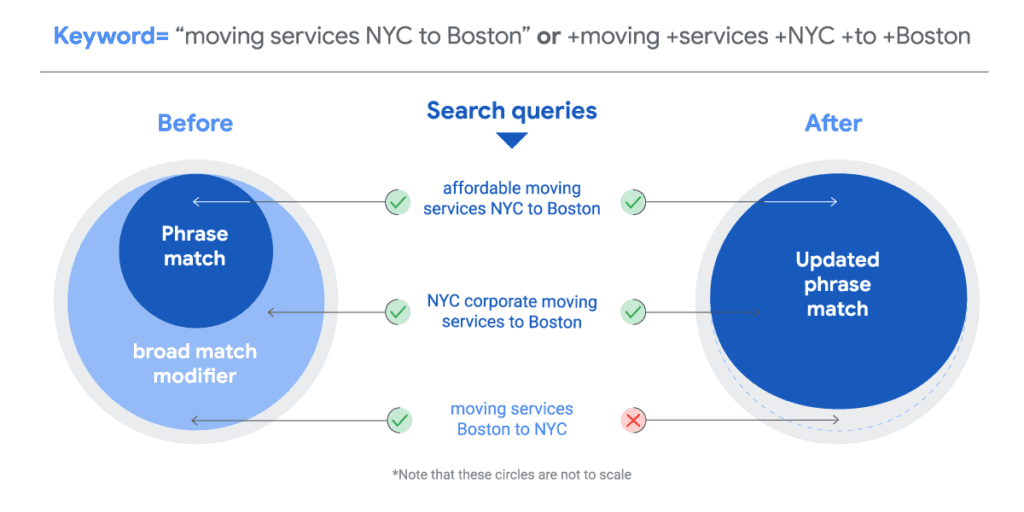Today, February 4th, Google announced a major update to keyword match types within paid search to broad match modifier and phrase match keywords.
The two biggest changes are:
1. Phrase match keywords can now serve for broad match modifier traffic; and
2. Google will end support for broad match modifier keywords later this year.

Why did Google make these changes?
According to Google, they’ve majorly improved matching by query intent over the past few years, so much so that having both broad match modifier and phrase match keywords is unnecessary.
How will phrase match keywords work now?
Now, phrase match keywords will be expanded to include synonyms or other closely-related words or phrases, while “continuing to respect word order when it’s important to the meaning.” They’ve offered this somewhat complex graphic in an effort to help explain the changes:

When will these changes occur?
These new changes begin to take effect in mid-February and will continue to roll out across the rest of 2021. Google estimates that by July, advertisers will no longer be able to create broad match modifier keywords.
What impact will these changes have?
The ramifications of this for an account are huge, especially for larger search programs. As with all major Google updates, we recommend closely watching search performance over the upcoming days and weeks. Phrase match keywords are especially vulnerable to large shifts in traffic and cost as this update rolls out.
As Chris Kendall , one of our SEM Analysts, put it:

Look Out for Changes in Your Campaigns
It’s worth noting that Google has made a few other small updates as well. When Smart Bidding is used, broad match keywords are including additional signals to determine where to serve an ad, including landing page content. The other update is to exact match: where eligible, exact match keywords are now prioritized to appear when they are identical to the query (see Google’s documentation for details on eligibility.)
We’ll keep you posted as we begin to see the impact of these changes. In the meantime—let us know if you see a noticeable impact in your campaigns. Follow us on Facebook or LinkedIn to stay in the loop! And as always, reach out to us if you have any questions on making paid search campaigns profitable.








